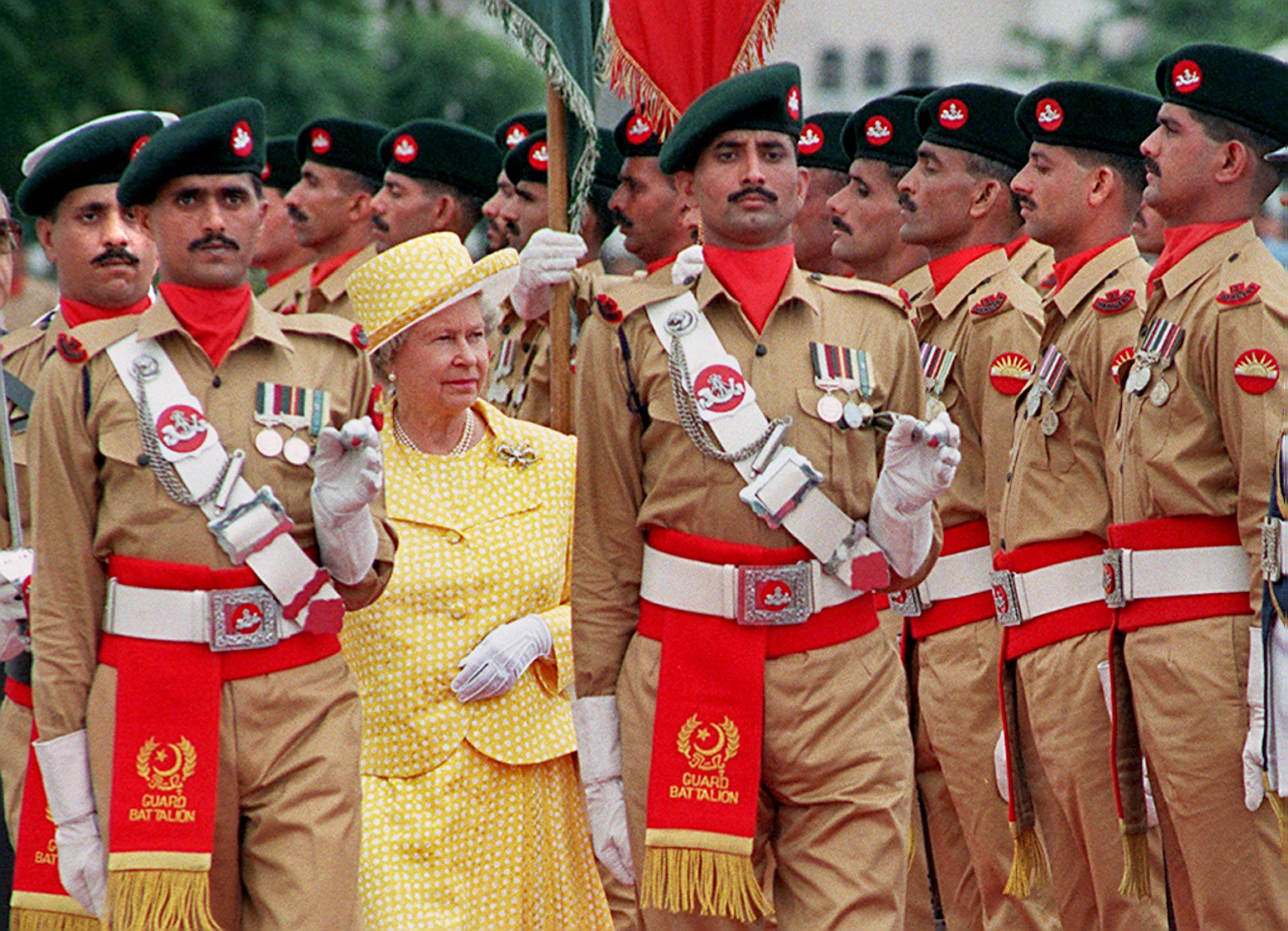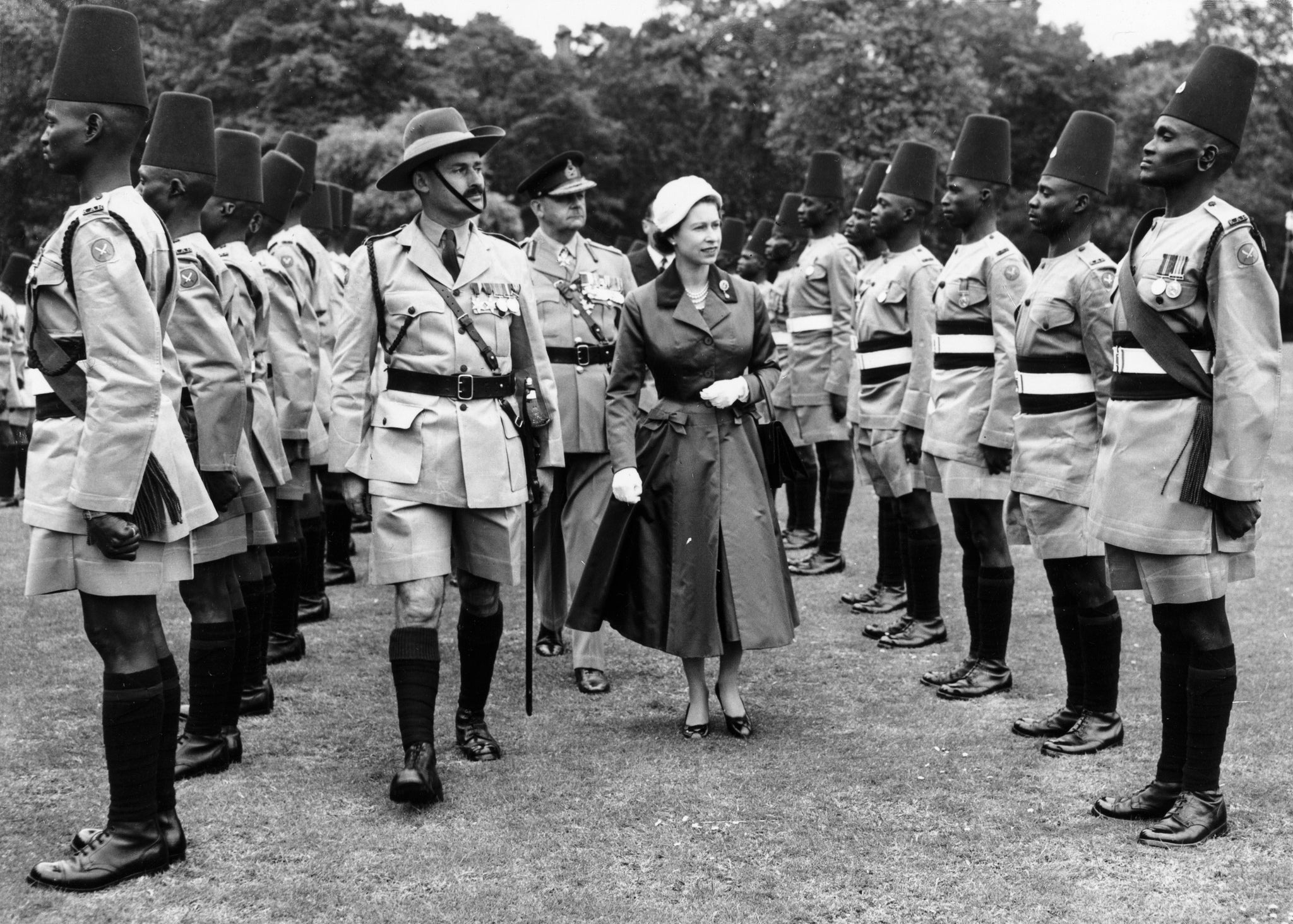Now is the time to talk about Empire: Why Queen’s death should make Britain confront its past
The widespread mourning seen for the death of Queen Elizabeth gives Britain a chance to address it colonial past, however uncomfortable, not run from it, reports Bel Trew


The death of Queen Elizabeth II, Britain’s longest-serving monarch, has been marked by a global outpouring of grief with civilians and leaders across the world praising the monarch for her 70 years of dedicated service to the United Kingdom and her position internationally as a fixture of stability. Emotions have been particularly high as it came on the heels of her platinum jubilee celebrations.
But accompanying the wave of support have been calls for the acknowledgement of the deadly legacy of the British empire and discussions on the extent to which recent British regents, including Queen Elizabeth, were directly implicated in it. There have also been calls from some corners of the Commonwealth for a fresh debate over the future of the monarchy in their lives, following the proclamation of a new King.
In the UK, meanwhile, rights groups, members of parliament and Britain’s former counter-terror chief, have expressed alarm about the erosion of free speech following a series of arrests of anti-monarchy protesters. Criticism of the Queen has been met with vicious backlash online with some commentators saying they have faced racism and threats to their safety.
Since the Queen’s passing over a week ago, social media has been alight with fraught debates over how to mourn the passing of a monarch, who was a constant for many and worked right up until the last days of her life, while at the same time addressing the wrongdoings of the institution she was part of, and the role she might have played.
Maya Jasanoff, a professor of history at Harvard and author of three books about the British Empire, told The Independent she faced fierce backlash online for an essay in the New York Times entitled, “Mourn the Queen, not the empire.”
In it, she argued that while the Queen should be rightly remembered for her life’s work “we should not romanticise her era”.
“The Queen helped obscure a body history of decolonisation, whose proportions and legacies have yet to be adequately acknowledged,” the piece argued.
She told The Independent the global response to the Queen’s death has been dominated exclusively by “only taking stock of the life and not taking stock of the times in their fullness”. She said there had been an effort to detach the figure from the broader history – despite the fact that the Queen held a unique position of being “both individual and institution”.
“The subject of empire, imperial amnesia and imperial nostalgia have been obviously gaining momentum in Britain in recent years in certain quarters of the population but it has still not been taken up seriously by parts of the establishment. And to some people now is not the time to talk about this,” she said.
“But it is well past the time to talk and the fact that it has been put off for so long is why you are getting it now – now there is a little door opening.”
We can mourn the death of a public figure proportionately but it is also time to acknowledge and mourn the many victims of colonial violence and those who have inherited suffering
“We cannot avoid the fact that the monarchy was ever more tied up with the empire in the 19th and 20th centuries.”
Melissa Murray, a law professor at New York University whose family is from Jamaica and whose Twitter thread on the subject went viral, said that while the Queen dedicated her life to service “it doesn’t exempt the institution of which she is part of from criticism”.
“It is understandable that people feel respect, reverence and affection, given the steadfastness with which she approached her position and the fact that she was not necessarily born to do that job,” she said.
“But that doesn’t diminish misgivings that people in the Commonwealth have been living with the vestiges of the empire and being subjected to colonialism on her watch. They have also been subjected to de-colonisation which was an incredibly destabilising and sometimes violent process.

“It is OK to talk about it and you can do it without diminishing any of the things she did accomplish.
“It does a disservice to her and any female leader to flatten her into an unalloyed good.”
Priyamvada Gopal, a professor of postcolonial studies at the University of Cambridge, said that what was startling about the response to the Queen’s death “was the scale on which this mourning is being enforced in Britain and the insistence on the global significance of this passing”.
“Particularly for the Commonwealth, which is another confection that glosses over the violence of British imperialism,” she continued.
“We can mourn the death of a public figure proportionately but it is also time to acknowledge and mourn the many victims of colonial violence and those who have inherited suffering,” she added.
She said “a great deal” of colonial violence has been inflicted in the name of the Crown but there has been largely denial and obfuscation around it.
“The Queen has very rarely noted the existence of ‘painful’ events such as the Jallianwala Bagh Massacre [by British soldiers in 1919 in which they gunned down hundreds of peaceful protesters] but there has been no effort to lead a national reckoning with the truth of the empire or to open up the precise nature of her inherited wealth to scrutiny.”
There have also been mounting concerns about crackdowns on freedoms follow a number of arrests of anti-monarchy demonstrators with the police being criticised for overstepping the mark.
Last Sunday in Edinburgh, a 22-year-old woman was arrested during the Accession Proclamation for the King outside the city’s St Giles’ Cathedral. The day after, another protester, a 22-year-old man, was arrested on the Royal Mile as footage appeared to show him heckling the royal procession.
In Central London on Monday, meanwhile, a viral video from Parliament Square showed barrister Paul Powlesland holding up a blank piece of paper and being asked for his details by an officer.

Mr Powlesland said the officer told him he risked being arrested if he wrote “not my King” on the paper.
Another man was arrested on suspicion of a public order offence after shouting “who elected him?” when he came across a public formal reading of the proclamation of the accession for the King in Carfax, Oxford. He was later de-arrested.
The arrests or threats of arrests have sparked further protests with activists gathering outside St Giles’ Cathedral on Tuesday carrying “blank canvases” in solidarity with those who had been detained during royal ceremonies.
The crackdown has also alarmed politicians, rights groups and ex-officials.
Conservative MP David Davis wrote to Scotland’s chief constable Sir Iain Livingstone this week urging the police to “continue to respect the right to free speech”.
The UK’s former counter-terror chief Nick Aldworth told the Press Association that “there was an inappropriate overprotectiveness towards the dignity of the event” by police.
"They didn’t act appropriately, it’s overzealous,” he said of the arrests.
Index on Censorship, a British group that campaigns for freedom of expression, said there were “worrying indications” that anti-monarchy protests were being silenced.
Ruth Smeeth, Index on Censorship’s CEO, said: “It is deeply concerning to see the arrests being made. The fundamental right to freedom of expression, including the right to protest, is something to be protected regardless of circumstance.”






Join our commenting forum
Join thought-provoking conversations, follow other Independent readers and see their replies
Comments